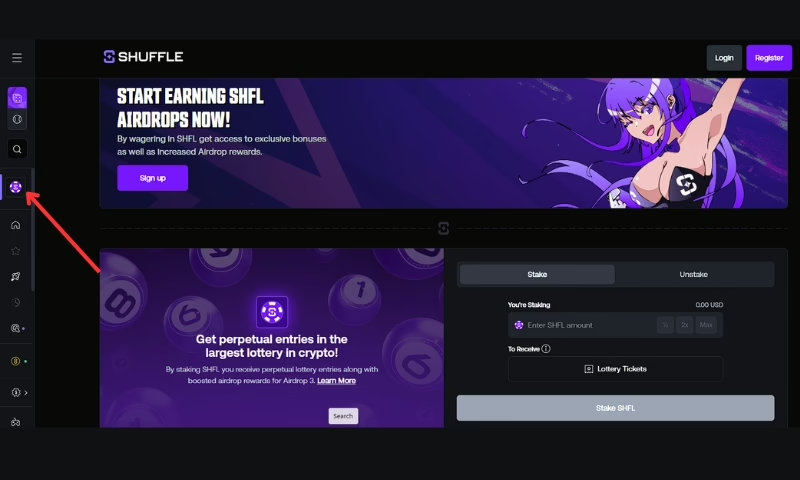
Since the emergence of blockchain technology, we have witnessed many use cases and adoption across different traditional industries, leading to transformation.
One of the best-known use cases of blockchain is in finance. Because of this technology, cryptocurrencies exist, which are used for trading, remittances, and even decentralized applications. Another blockchain use case in finance is lending.
Another known use case of the technology is in ownership. Non-fungible tokens can represent artworks, in-game assets, records, and other items.
There is another emerging blockchain use case today: decentralized science.
What is Decentralized Science?
As the name implies, decentralized science (DeSci) uses blockchain to transform the world of science.
DeSci is about utilizing blockchain technology to upgrade the traditional methods of scientific research.
The role of blockchain is to make research more fair and accessible by making funding, collaboration, and data sharing more open and transparent.
Blockchain is also being used in scientific research through NFT-based intellectual property rights.
Moreover, if scientific research is conducted in a decentralized network, such as major blockchains, research data will be more secure. This is because the verifiable and auditable nature of these networks can validate and trace the process through smart contracts.
It should be noted that DeSci is still an emerging use case, and it is expected to be further developed, similar to how decentralized finance has evolved into a helpful tool today.
“As researchers and institutions see the benefits of blockchain—like better reproducibility, easier access to funding, and improved knowledge sharing—adoption will likely speed up. If DeSci follows the path of DeFi, it could change how science is done and funded, making it more inclusive and efficient.”
Tangem, Creator of Cold Crypto Wallets
How Does DeSci Work
Similar to other blockchain organizations, DeSci projects use decentralized autonomous organizations (DAOs), which handle decision-making on funding, peer review, data security, and publication.
Because they are decentralized, DeSci projects do not have a centralized entity managing them, but instead rely on a community of contributors.
These contributors are rewarded for their contributions to the research through cryptocurrency.
Here is the common process of DeSci in Research:
DAO formation → Contributors join by staking tokens → Scientific researchers propose an initiative → Approval through funding by the DAO → Start of research → Peer review → Use of data protected by NFT-based intellectual property rights → Data collection → DAO verifies process → Research is published → Findings are protected by NFT-based intellectual property rights and shared with other DeSci projects
How DeSci Solves Traditional Scientific Research
In traditional scientific research, approval from large institutions or centralized entities is often needed to begin the process.
In DeSci, DAOs help researchers conduct their work without the approval of these institutions.
This lowers the barriers to entry for scientific research, particularly for financially challenged or small-scale institutions that struggle with funding and recognition.
However, it should be noted that these open funding opportunities may be misused by other projects or bad actors.
Three Projects That Use DeSci
In January 2025, the National Data Protection Authority of Brazil ordered Tools for Humanity to stop operations in the country starting Jan. 25.
This followed an investigation, which began in November 2024, and found that the company violated Brazil’s General Data Protection Law, which emphasizes the need for explicit consent, transparency and data minimization in handling personal information.
Bio Protocol

Bio Protocol offers a variety of funding mechanisms, enabling contributors—whether individuals or organizations—to directly support projects.
Researchers can use the platform to collaborate across disciplines and geographic boundaries in “protocols,” which include biochemistry, biophysics, cancer biology, cell biology, developmental biology, immunology, microbiology, molecular biology, neuroscience, plant science, stem cell research and systems biology.
ResearchHub

ResearchHub allows users to access scientific literature and publish their research for free. It also provides tools for data sharing and co-authoring studies.
Researchers can earn ResearchHub’s native token by engaging with the platform, including peer reviews and data sharing.
vitaDAO

VitaDAO is a DAO where the community votes to approve projects focused on healthy aging and longevity research.
This article is published on BitPinas: What is Decentralized Science (DeSci)? Blockchain’s Next Big Use Case Beyond Finance and NFTs
What else is happening in Crypto Philippines and beyond?
#Decentralized #Science #DeSci #Blockchains #Big #Case #Finance #NFTs




